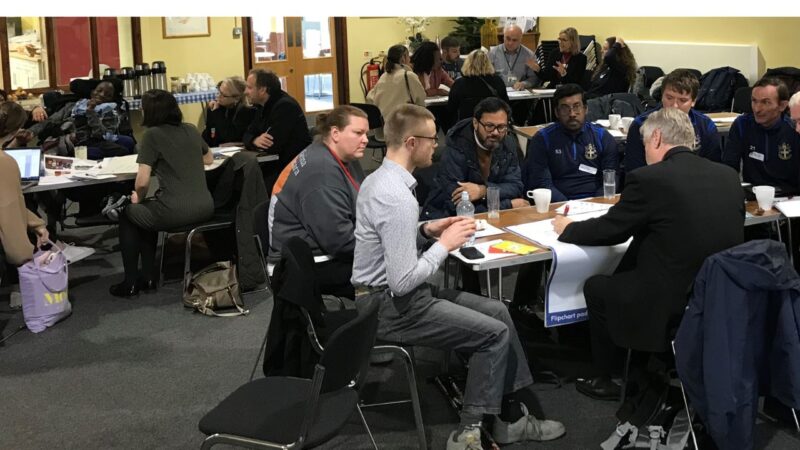Lucy, a Sutton resident with mild learning difficulties and cerebral palsy, has some advice for GPs and hospital staff when giving diagnoses and health advice. “It is important to spend more time with patients who have a learning disability,” she said. “They may take more time to communicate what may be wrong with them when they are in hospital being treated, as they are in an unfamiliar environment.”
Getting equal access to healthcare can be a struggle if you have a learning disability – so much so, that there’s a 20-year gap in life expectancy in the UK compared to the general population, according to a report by King’s College London.
Data shows that those with learning disabilities are more likely to attend A&E for issues that could have been treated elsewhere and more likely to be admitted to a mental health hospital. In addition, easy-to-use public transport, availability of good, supported housing and access to jobs and training all impact on people’s quality of life – and, consequently, their health.
We need to provide more disability awareness training sessions in hospitals and GP surgeries to help medical professionals gain extra skills and training to help communicate more effectively with patients.”
For Sutton’s health and care partners, making change in this area is a priority – but in a way that ensures improvements to services are co-designed with the people who use them. As part of this commitment, people with learning disabilities, their families and carers came together with the health, housing and voluntary sectors for a conference to talk about the actions which are needed.
A total of 65 people took part in a conference, which resulted in pledges to be taken before a further event in the autumn. Among them was Lucy, who lives independently in a flat in Sutton and enjoys going to the gym and volunteering with charities including Speak up Sutton/Advocacy for All and the Salvation Army, where she works in the coffee shop.
According to Lucy, attending healthcare appointments in both GP surgeries and hospitals can present difficulties. “Quite often when you go for an appointment in either of these places the healthcare professional will use some form of jargon when explaining to the patient why they are feeling unwell, which often makes the information difficult to understand,” she said.
“We need to provide more disability awareness training sessions in hospitals and GP surgeries to help medical professionals gain extra skills and training to help communicate more effectively with patients, including on the importance of not using medical jargon when treating patients with a learning disability.” As well as training sessions, Lucy would like to see more leaflets and information made easier to read.
Other families shared the challenges they face in the borough as well as what works well. When it comes to health, those taking part wanted more availability of face-to-face GP appointments and better training for GP staff, and to ensure people come away feeling they’ve had a good experience. One issue was ensuring that health staff talk to the patient – not their carer.
Attendees talked about the need for more preventative healthcare and support for people when they are in hospital – including widespread use of hospital passports, which contain vital information about people’s health conditions and how they communicate. There were also calls for more research into why people are being admitted to specialist mental health units.
On the plus side, the conference heard how more people with learning disabilities are coming forward for cancer screening, with better information available to help them make the choice to take part. The local NHS has recently worked with Sutton Mencap to produce films demonstrating what happens at bowel and breast screening appointments. Most people had also received their annual health check and have a health action plan.
“This was a powerful event that brought more than 60 people, their families and carers together to talk about the challenges they face every day – and the positives too.”
In other areas, people wanted more supported housing and safe, accessible public transport so they could find employment or take part in leisure activities more easily. They also wanted the needs of people with learning disabilities to be taken into account as improvements are planned to the town centre.
Dr Bob Calverley, the learning disability lead GP for Sutton, spoke at the conference. He said: “This was a powerful event that brought more than 60 people, their families and carers together to talk about the challenges they face every day – and the positives too. Following the conference Sutton GPs will be sharing ideas on how to make appointments easier for people who have a learning disability and finding out more from patients about how we can give them a better experience.”
Community groups taking part included Sutton Mencap, Sutton Parent Carer Forum, Community Action Sutton, Nickel Support, Speak Up Sutton, Choice Support and Advocacy for All.
During the conference decision makers made promises about what they could do to help make Sutton a better place for people with learning disabilities, their families and carers. In September, these promises will be followed up to see what progress has been made.
